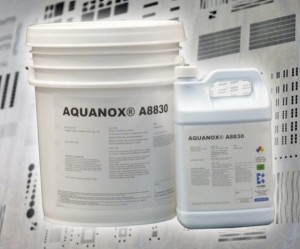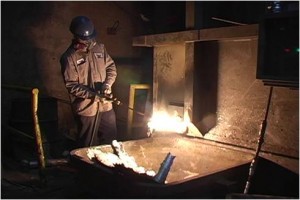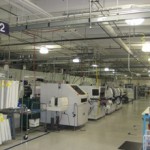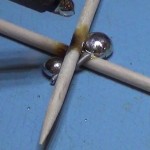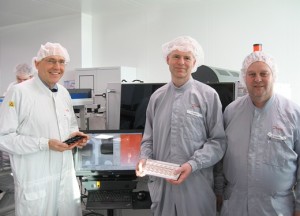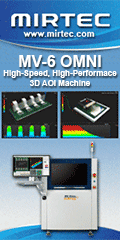By Yusaku Kono
The ASEAN region is gaining prominence as a major area that supports the world’s manufacturing industry. In particular, more companies are focusing on ASEAN not only because of its benefits as a production base in terms of land and labor costs, but because its proximity to the major Asian markets allows local production for local consumption. This article explores the characteristics of the countries that belong to ASEAN and the state of soldering in each country.
Singapore: New leader of electronics
Singapore has a high per capita GDP and is a prominent presence in the ASEAN region. It is typical of the Asian financial market as a world-class foreign exchange and financial center. Blessed by its geographic position on the tip of the Malay Peninsula, it competes with Hong Kong for the world’s top two slots in volume of cargo handled. While not especially prominent in terms of manufacturing and production, its research in biotechnology is thriving, and it is home to many manufacturing, research, and development centers, particularly for companies from the United States and Europe.
Singapore is politically and economically stable; it has advanced production processes to those in manufacturing leading countries. In particular, the country is putting effort into copy protection and intellectual property rights protection, so there are major benefits for companies coming into Singapore in terms of technological protection. For this reason, there are cases of manufacturers moving to Singapore due to distress by technological leaks in other markets. Labor costs are high and Singapore is making progress with introducing robotics and automated equipment. In particular, it has become an Asian center for the manufacture of medical devices.
Since Singapore is a production hub for medical equipment and advanced technology, it appears to be trending toward higher levels of difficulty, such as miniaturization of parts and increased density of circuit boards. This requires higher quality soldering, not only in terms of contact soldering, but laser soldering as well.
Thailand: Qualified & experienced maker
Thailand has been an early leader in the ASEAN manufacturing industry. The automotive and consumer electronics industries have opened production centers there. In particular, Japanese companies’ manufacturing of home electronics, such as refrigerators, washing machines and air conditioners, stands out. About 90% of the world’s hard discs are produced in Thailand, with international hard disc brands such as Western Digital and Seagate expanding there. Major Japanese motor manufacturers such as Minebea and Nidec have also expanded into Thailand, and there are numerous major factories producing semiconductors, communications equipment, and EMS joins too.
Thailand has a low turnover rate and its people have abundant manufacturing experience and very high management skills. However, its labor costs are high, second only to Singapore, and the competition for human resources has grown intense. As with Singapore, while robotic and automated factories are increasing, there is also a tendency to fulfill the need for human resources with laborers from neighboring countries such as Laos, Cambodia, and Myanmar.
There are many Japanese automobile manufacturers here, so there are many applications that require high heat capacity, and many places are introducing tabletop soldering robots with high-powered heaters and articulated soldering robots. Additionally, due to the superior quality demanded for automobile manufacturing, many are implementing high-powered lasers and demanding stable and high-quality soldering.
Malaysia: Integrated manufacturer
Malaysia is rich in natural resources such as rubber and gas, but it has long been promoting industrialization and has developed significantly. It has promoted domestic manufacturing in a variety of fields. In particular, domestic manufacturers Proton and Perodua in the automotive industry have risen to the point where domestic manufacturers occupy 60% of the Malaysian automobile market.
On the other hand, their labor costs are on the rise as well. Japanese companies make up a large percentage of the international companies expanding into Malaysia. In particular, many of these companies are mass-manufacturers of low-end products such as general home appliances. This has led to there being many excellent System Integrators (SI) with excellent automation capabilities.
Meanwhile, price competition is very tough due to the low-end product manufacturing sector. Therefore, there are many cases where, instead of buying soldering robots alone, companies adopt soldering modules which local SIs mount to robots or equipment and provide automation support.
Indonesia: Potential manufacturing giant
Indonesia has the fourth largest population in the world, but its per capita GDP is around $3,500, almost 25% of the world average ($13,410). Its main industries are liquefied natural gas, agriculture, and mining. However, the domestic motorcycle market has actively grown. Many manufacturers related to motorcycles have expanded there and in recent years automotive electronics firms have grown as well.
As with Malaysia, it has a lot of production of low-end home appliances. The percentage of those products made for the local market is high. On the other hand, there are issues of educating skilled workers, thus, soldering robots and automation are being implemented for mass production.
Vietnam: Newly born producer
Among ASEAN countries, Vietnam has low wages and there are many who have high expectations for it as an attractive production base. Samsung and Cannon have attracted attention for opening major electronics manufacturing and service hubs there.
The major cities of Hanoi and Ho Chi Minh City are located in the north and south of the country. One key feature of Vietnam is that it is easy to secure large factory sites in nearby suburban areas. It is becoming a hub for mass-production of digital electronics such as smartphones.
On the other hand, it differs from neighboring countries in that entering the market requires partnering with local companies. Because of the cheap labor costs, it is still common to operate soldering by hand. However, recently Vietnam has begun to engage in manufacturing value-added products, introducing small soldering robots and having humans and robots coexist in cell manufacturing style to support large-scale production.
Philippines: Industrial suburbs
With strong influences from the United States, the Philippines has many US companies. While famous for tourist resorts such as Cebu, factories are being set up in the neighbor of the resorts. Since the country is made up of small islands, transportation infrastructure is still underdeveloped. Since most goods are transported by ships, high delivery costs are a disadvantage.
In the Philippines, it is still rare for local factories to be consulted on issues of plant efficiency. In most cases, a production project is launched in the manufacturer’s home country and then the automated production line that was studied in the home country is set up in the Philippines.
Myanmar and Cambodia: Asian frontiers
Myanmar was slower to develop economically due to its social situation, but it transitioned to civilian rule in 2010 and is actively attracting the attention of investors as the “Asian frontier.” Cambodia’s tourism and textile industries are growing. It is expected that there will be more active investment in industry and manufacturing in both countries.
In terms of soldering, the countries are starting to train operators. Their success depends upon how quickly they will be able to educate excellent operators. As with Indonesia, there has been an increase in the implementation of robotic soldering in place of soldering by skilled workers.
Improved soldering efficiency suited to the circumstances in each country
Even within the ASEAN region, the circumstances, languages, culture, and production environments vary from country to country. Therefore, in order to maintain soldering quality and optimize the process, manufacturers need an appropriate approach to automation that is best suited to and takes into account these various situations.
In the top three industrialized countries in ASEAN (Singapore, Thailand, and Malaysia), there are many excellent local SIs. Therefore, they have high production capacity for value-added products, and are adding more and more advanced production lines that use robotic soldering for labor-saving and stability. There are many cases that link together local factories and those in the home country to integrate and integrated soldering robots with conveyor as factory automation system.
On the other hand, even in the three countries mentioned above, the manufacturing applications differ. It could be said that the most important aspect to the stability and efficiency of soldering quality is applying appropriate soldering methods that take into account the various elements, such as circuit boards, components, and factory environments.
The ASEAN countries and Japan Unix
As an expert specializing in soldering, Japan Unix is expanding its business globally to the point that international sales exceed 50%. Japan Unix has expanded our business from early on in Japan as well as in China. The company has supported the expansion of domestic companies and global EMS into China, and the growth of local manufacturers. It has cooperated with local partners to provide a variety of solutions that deal with rising labor costs, working toward automation through the implementation of soldering modules, such as on installation lines that use soldering robots.
Taking advantage of that expertise, Japan Unix specializes in providing a broad product line suited to the various countries in the ASEAN region, including contact, laser, robotic soldering, and soldering modules.
In particular, Japan Unix soldering robots have seen certified success in Japan and abroad, and are rapidly being implemented in the ASEAN region as countermeasure to rising labor costs. Japan Unix meets the needs of companies that are having difficulties with securing and training operators, by providing high-quality and stable soldering products.
As a result of direct deals, Japan Unix has built close partnerships with manufacturers in the world. It has been involved in ASEAN for a long time, building a track record as a bridge between ASEAN and other continents, and accumulating vast expertise.
Modularized core soldering technology: Achieving soldering automation with utilizing existing facilities and equipment
Japan Unix offers a new unitized version of the core robotic soldering technology that it has built up over the course of many years. Its three key features are the soldering controller, feeder, and soldering head, which can be mounted on existing equipment or foreign-made robots. Since there are limitations to implementation costs in the ASEAN region, in many cases companies implement the unit and a local SI integrates it into the system.
For more information, contact Yusaku Kono, Marketing Director, JAPAN UNIX Co., Ltd., 2-21-25, Akasaka, Minato-ku, Tokyo, Japan; Phone: +81-(0)3-3588-0551; Web site: http://www.japanunix.com/en/












